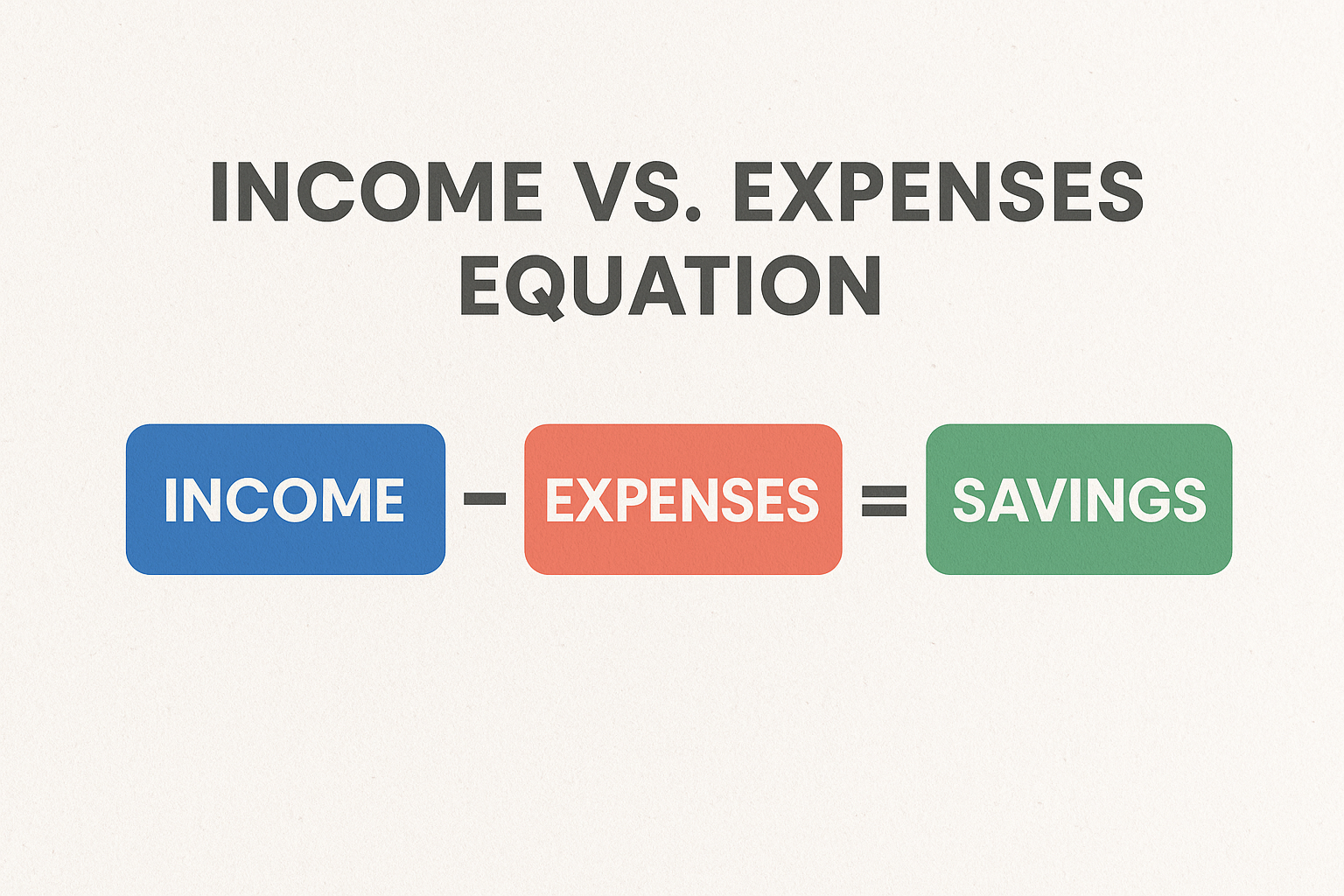Introduction
Money is one of the resources we deal with most often in our daily lives but for many people, balancing this resource can prove challenging! Personal finance is not just how you make money, but how you manage, save and invest that money so that you can secure your future and ultimately achieve the priorities that you have set for your life. As you progress through your life you may want to purchase a home, send your kids to school, travel the world, and gracefully retire in your old age. Establishing your money priorities and understanding how to save and spend while balancing these priorities will be fundamental to your financial future.
This article will discuss a number of personal finance fundamentals in depth, while talking about budgeting, savings, investing, debt and creating long-term financial security. At the end of this article you will have a clear road map to develop a financial lifestyle that is healthy for you and your family.
Grasping the Fundamentals of Personal Finance
Why Managing Money is Important
Money can “disappear” in a hurry without intentionality. Many people are living paycheck to paycheck and using credit cards and loans to pay the bills and cannot even imagine being without debt. The cycle continues of worrying, getting into debt, and possibly losing control over it. Financial management helps you:
• Avoid putting yourself into debt unnecessarily.
• Prepare for emergencies.
• Achieve your personal and professional goals, quicker.
• Accumulate wealth over time.
What is the Income vs. Expenses Equation?
In the simplest of terms, personal finance is about ensuring your income is higher than your expenses. Your income is derived from your wage/salary, side hustle/side jobs, investing, or through your business. Expenses typically include rent, bills, groceries, and entertainment costs. All you need to do is to make sure you have more income than expenses or to create a surplus which you can save or invest for growth.

Budgeting: The Foundation of Financial Freedom
What Is a Budget?
A budget is a financial plan that records how you earn and spend money, it allows you to prioritize your needs over your wants, eliminate needless spending, and find the balance between spending money and saving or investing.
The Popular Methods of Budgeting
50/30/20 Rule
• 50% on needs: rent, bills, groceries, healthcare
• 30% on wants: travel, shopping, eating out
• 20% towards savings and investing: emergency fund, retirement accounts, or stock market investments.
Envelope system
This is the most traditional budget method. You take the cash and separate it into envelopes categorized (rent, food, entertainment, etc.). When the cash is gone in an envelope, you don’t spend anymore in that category.
Zero-balance Budgeting
All of your income gets a job (bills, savings, investments, etc.) so income – expenses = 0. It has a job.
Tips for Successful Budgeting
• Track all income and expenses
• Use personal finance apps like mint, YNAB (you need a budget), pocket guard, etc.
• Review your budget monthly and make changes as adjustments are needed
Money Saving: Preparing for the Unknown
Why You Should Save
Unforeseen events such as losing your job, facing a medical emergency, or needing car or home repairs can leave you with unexpected expenses that create financial instability. The purpose of savings is to not have to use your credit cards or take out loans if you can help it.
Types of Saving
Emergency Fund
This should be at least 3 – 6 months of your living expenses. This will create a safety net when times get tough.
Short Term Saving
These are the funds you set aside for items in the future such as vacations, weddings, or down payments on cars.
Long Term Saving
These are the funds you set aside for large future expenses like buying a house, your children’s college education, or for retirement.
Ways to Save More Efficiently
• Transfer money to your savings automatically.
• Cut unnecessary subscriptions.
• Buying in bulk or avoid impulse purchases.
• Open a high interest savings account.
Investing: Making Your Money Work for You
What is Investing?
While saving means protecting your money, investing means you are putting your money into something that you believe will return money to you, whether that be stocks, bonds, property, or businesses.
Investment Types
Stock Market
Profits on stocks can be very high, but there is also a risk. Start with investments such as index funds and ETFs for long term investment.
Real Estate
Real estate is often an appreciating asset, offers rental income, plus equity growth for properties financed with a loan.
Bonds
Typically less risky than stocks, bonds produce returns, though typically not at the level of stocks.
Retirement Accounts
401(k), IRA, and pension plans help increase your wealth to live on after retirement.
Modern Digital Investments
Cryptocurrencies, crowdfunding, and robo-advisors are becoming more heavily used, but proceed carefully; these can be risky but can also give excellent rates of return.
The Golden Rules of Investing
• Diversify your portfolio, do not risk all of your money in one asset.
• Invest early; take advantage of compound interest.
• Only think long-term, do not speculate.
• Only invest with money you can afford to lose.
Using Debt Responsibly
Overcome Common Debt Pitfalls
People often cause themselves financial pain by:
• Over using credit cards.
• Taking payday advances or penalty loans with exorbitant interest rates.
• Financing a lifestyle they cannot afford.
The right way to manage Debt
Snowball method
Pay off the smallest debts first to build momentum before tackling the larger debts.
Avalanche Strategy
Paying off the highest interest debts first will save you more money in the long run.
Reach out to your lenders
Banks are more willing to drop your rate or redo your loan if you reach out early.
Do not incur new debt
Avoid credit when possible, use cash and debit.
Building a Prosperity Mindset
Utilize Technology
In the digital age, managing personal finances is easier than it has ever been:
• Budget Apps: Track your spending in real time.
• Online Banking: Have access to your bank account anywhere you go.
• Automatic Transfers: Move money to your savings or investments without thinking.
Financial Education
Knowledge is power, and you can further empower yourself by:
• Reading finance books – for example, Rich Dad, Poor Dad and The Millionaire Next Door.
• Listening to personal finance podcasts.
• Taking part in webinars and workshops.
Securing Your Future
Planning for Retirement
The earlier you start planning for retirement, the easier it will be. Over time, small contributions can grow into large amounts with the help of compound interest.
• Contributing regularly to your retirement accounts.
• Taking advantage of employer-matching programs of your contributions.
• Diversifying your investments to reduce risk and stabilize your assets.
Protecting Your Family
Financial security isn’t only about you. Protect your loved ones by:
• Establishing a will or trust.
• Purchasing life insurance and health insurance.
• Establishing an education fund for children.
Conclusion
To manage your money well doesn’t necessarily mean being rich; instead it means being responsible or disciplined, and to think of your future. Anyone can take control of their financial life, as long as they have the proper tools and way of thinking.
